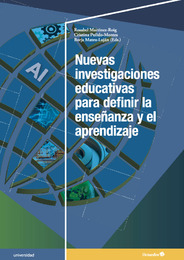Por favor, use este identificador para citar o enlazar este ítem:
https://hdl.handle.net/11000/35603Registro completo de metadatos
| Campo DC | Valor | Lengua/Idioma |
|---|---|---|
| dc.contributor.author | AMOROS MARTINEZ, ARACELI | - |
| dc.contributor.author | González Morales, Mónica | - |
| dc.contributor.author | Cavero Rubio, José Antonio | - |
| dc.contributor.other | Departamentos de la UMH::Estudios Económicos y Financieros | es_ES |
| dc.date.accessioned | 2025-02-10T08:16:27Z | - |
| dc.date.available | 2025-02-10T08:16:27Z | - |
| dc.date.created | 2024 | - |
| dc.identifier.citation | Localización: Nuevas investigaciones educativas para definir la enseñanza y el aprendizaje, págs. 3 - 15 | es_ES |
| dc.identifier.isbn | 978-84-1079-033-9, | - |
| dc.identifier.uri | https://hdl.handle.net/11000/35603 | - |
| dc.description.abstract | In the educational realm, continually exploring new methodologies to enhance student learning and classroom experience is crucial, particularly in subjects like accounting, known for their practical focus and the necessity for students to grasp both theoretical and practical components. However, the traditional teaching approach, relying on lectures and individual exercises, often disconnects students from applying knowledge practically, leading to a lack of interest and motivation. In response to this challenge, role-playing was introduced as an innovative strategy in the Accounting Planning subject, immersing students in simulated business scenarios to confront challenges, make decisions, and experience consequences. Beyond fostering active participation, role-playing enhances critical and analytical skills, significantly contributing to students’ preparation for workplace challenges. Evaluating this approach involved two groups: one undergoing continuous assessment through group practices (role-playing) and another following traditional teaching method. The analysis revealed significant differences in academic performance, with the continuous assessment group outperforming the traditional group. Student perceptions, gathered through a survey, indicated a positive experience with the continuous assessment approach, emphasizing its utility in understanding content and developing communication and problem-solving skills. These findings underscore the effectiveness of group practices, particularly role-playing, in improving learning in Accounting Planning, supporting the notion that implementing innovative educational methodologies can significantly enhance education quality and student engagement. | es_ES |
| dc.format | application/pdf | es_ES |
| dc.format.extent | 20 | es_ES |
| dc.language.iso | spa | es_ES |
| dc.publisher | Octaedro | es_ES |
| dc.rights | info:eu-repo/semantics/openAccess | es_ES |
| dc.rights | Attribution-NonCommercial-NoDerivatives 4.0 Internacional | * |
| dc.rights.uri | http://creativecommons.org/licenses/by-nc-nd/4.0/ | * |
| dc.subject | teaching in accounting | es_ES |
| dc.subject | higher education | es_ES |
| dc.subject | educational innovation | es_ES |
| dc.subject | role-playing | es_ES |
| dc.subject | cooperative learning | es_ES |
| dc.subject.other | CDU::3 - Ciencias sociales | es_ES |
| dc.title | Innovación educativa en planificación contable: juego de roles | es_ES |
| dc.type | info:eu-repo/semantics/bookPart | es_ES |

Ver/Abrir:
Innovación educativa en planificación contable.pdf
4,19 MB
Adobe PDF
Compartir:
 La licencia se describe como: Atribución-NonComercial-NoDerivada 4.0 Internacional.
La licencia se describe como: Atribución-NonComercial-NoDerivada 4.0 Internacional.
.png)